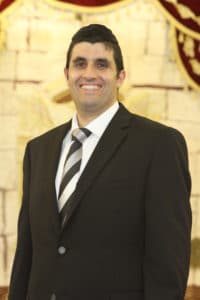Parasha Thoughts
By Rabbi David Cohen
Between Paran and Tofel and Lavan, and Chatzeiros and Di Zahav. (1:1)
Rashi explains that these names are all allusions to sins committed by the people. Paran is a reference to the wilderness of Paran from where the meraglim, spies, were sent out. Rashi says that Chatzeiros also refers to the sin of the spies, since Chatzeiros is where Miriam was punished for speaking ill of Moshe Rabbeinu. Moshe said to them, “You should have learned a lesson about lashon hora, defamatory speech, from what Hashem did to Miriam at Chatzeiros. Yet, you went ahead and spoke against Hashem and Eretz Yisrael.”
Why was it necessary to rebuke them twice for the same sin? The Maharal m’Prague explains that the first rebuke was for the actual sin of speaking Lashon Hara. The second reproach was specifically for not learning a lesson from the incident of Miriam. One who sees the effect of a sin and does not take note to correct his own ways is by the omission itself committing a sin.
Similarly, in our own lives we are exposed to situations where others might not be doing the will of Hashem and we see the effects this has on their spirituality. It’s not a coincidence that we are faced with these confrontations; it’s Hashem showing us that we must work on ourselves in these areas and grow. A failure to do so is a failure on our part. May we all be Zocheh to be a shining example for our community.
Shabbat Shalom!

